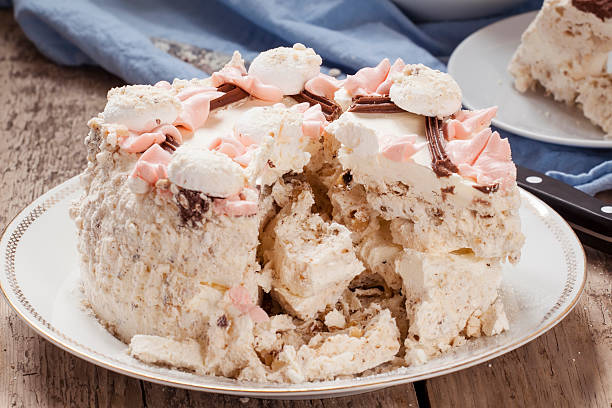
This Is Why Your Cake Collapses
Published
By Maureen Eugene
“How could you let your cake collapse? Was it too hard to do? That was such a simple task, but you messed it up! Why? That cake took your whole time in the kitchen, yet you flopped everything after. You are not a good baker! You don't deserve to be a baker," says the tiny voice in your head.
Never allow that tiny voice to discourage you. First, you should know that baking is not simple. It takes a lot of time to bake a dough of beauty and sweetness. Second, having a collapsed cake is a typical experience. For most bakers, it's a journey to perfection. Even seasoned bakers once experienced this challenge and discovered the way out. You can discover the way out too — and silence that tiny voice only if you keep reading.
Your cake collapses because:
1. Your oven temperature is too high. Oven temperature significantly impacts your cake. Cakes usually bake between 163–232°C (325–450°F).
Use an oven thermometer to confirm the accuracy of your baking temperature. Closely watch the oven against overheating. A lot can happen if the oven is too hot. The cake layers will appear brown on the outside, making you believe that your cake is well cooked when it's not. Such cakes will collapse when the layers are cooled.
2. Your recipe has insufficient or spoilt/expired ingredients. A product that is already expired can alter your cake result. Its efficacy will be inadequate, and your cake will collapse.
Check the expiry dates of your ingredients before use. Do not manage products or use any in place of another. Also, use them in the right proportion. Adding an extra amount of an ingredient(s) can affect your cake.
3. You do not preheat. Uneven, lumpy cakes are the result of low heat. Low heat causes ingredients such as baking soda, baking powder, eggs, and yeast not to rise properly. If you want to bake, ensure you preheat for at least 30 minutes before anything goes into the oven.
4. You beat the batter excessively. Excessively beating the batter makes your cake too smooth and creamy and then exposes it to too much air, especially when dry and wet ingredients have been uniformly stirred. This can collapse your cake and render your labor fruitless. To avoid this, beat the batter for 2 to 6 minutes.
5. You frequently open the oven. In a bid to monitor your cake and prevent it from collapsing, you may find yourself opening the oven every minute. This is a bad practice. When a cake is in the oven, its center rises — and this needs the right amount of heat to happen. When you open the oven door, you release the heat built up in the oven and disrupt the rising process, which subsequently leads to collapse.
With the right guide, cake baking is easy, and our Cake Baking and Decoration Course is the right guide. Learn how to bake sweet and mouth-watering cakes from the comfort of your home by getting the course now. All you have to do is click here.